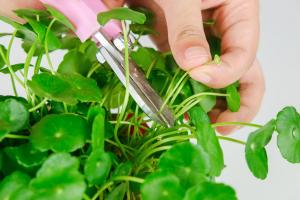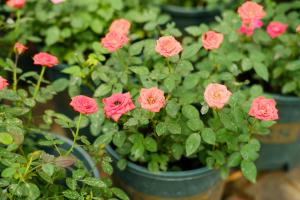How to Grow Tomato Plants in the Winter
Tomatoes are delicious and versatile fruits that can be used in a variety of dishes. While they are typically grown in the summer months, it is also possible to grow tomatoes in the winter. Growing tomatoes in the winter requires more effort and attention, but it can be a rewarding experience. Here are some tips on how to grow tomato plants in the winter:
Choose the Right Variety
Not all tomato varieties are suitable for growing in the winter. You will need to choose a variety that is well-suited to indoor growing and can thrive in cooler temperatures. Some good options include cherry tomatoes, beefsteak tomatoes, and roma tomatoes. Choose a variety that is disease-resistant and suitable for growing in containers if space is limited.
Use Proper Lighting
Tomato plants require a lot of light to grow and produce fruit. In the winter, natural light may not be sufficient, so you will need to supplement with artificial light. Use specialized grow lights that emit the full spectrum of light required for plant growth. Position the lights so that they are 6-8 inches above the plants and keep them on for 12-16 hours a day.
Provide Adequate Heat
Tomato plants require warm temperatures to thrive. The ideal temperature range for growing tomatoes is 70-80°F during the day and 60-70°F at night. If your home or greenhouse is not warm enough, you may need to use a space heater or heating mat to maintain the proper temperature. Be sure to monitor the temperature closely to avoid overheating or underheating the plants.
Water and Fertilize Regularly
Tomato plants require consistent moisture and nutrients to grow and produce fruit. Water your plants regularly, keeping the soil moist but not waterlogged. Use a high-quality fertilizer that is specifically formulated for tomatoes. Apply the fertilizer according to the manufacturer's instructions and adjust the dosage as needed based on the growth of your plants.
Control Pests and Diseases
Tomato plants are susceptible to a variety of pests and diseases, especially when grown indoors. Keep a close eye on your plants and take action at the first sign of any problems. Use organic pest control methods, such as neem oil or insecticidal soap, to control insects. Use a fungicide to prevent and treat fungal diseases like powdery mildew and blight. Regularly remove any dead or diseased foliage from the plants.
Harvest and Enjoy
With proper care and attention, your tomato plants should start producing fruit within a few months. When the tomatoes are ripe, gently pluck them from the vine and enjoy them in your favorite recipes. Tomatoes grown in the winter may not be as large or plentiful as those grown in the summer, but they will still be delicious and satisfying.
With these tips, you can successfully grow tomato plants in the winter and enjoy fresh, homegrown tomatoes all year round. Happy gardening!

 how many times do yo...
how many times do yo... how many planted tre...
how many planted tre... how many pine trees ...
how many pine trees ... how many pecan trees...
how many pecan trees... how many plants comp...
how many plants comp... how many plants can ...
how many plants can ... how many plants and ...
how many plants and ... how many pepper plan...
how many pepper plan...































